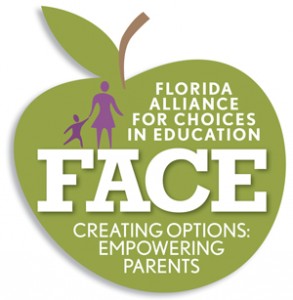 In 2010, Doug Tuthill took a look around and realized he was living in a new era.
In 2010, Doug Tuthill took a look around and realized he was living in a new era.
“Florida had this rapidly expanding portfolio of school choice options,” said Tuthill, the president of Step Up For Students, which administers the state’s tax credit scholarship program. “Yet there was little dialogue among the groups representing those choices. We weren’t talking to each other about what was working, what wasn’t, and why.”
Several important players in this bourgeoning movement recognized the need for more collaboration. Florida Virtual School and Step Up For Students, among others, wanted to see the school choice movement united, so they could learn from each other and talk through any differences.
Thus, FACE was born.
Florida Alliance for Choices in Education, or FACE, is comprised of more than 50 members, representing a diverse coalition of organizations dedicated to providing Florida school children with more educational options. Such organizations include National Coalition of Public School Options, Florida Charter School Alliance, Foundation for Florida’s Future, and StudentsFirst - all coming together with the belief that, as the FACE website says, “State policy should enable all parents to be fully engaged in their children’s education and to access those learning options that best meet their children’s needs.”
Step Up For Students (which co-hosts this blog) staffed the initial effort. Three individuals - Wendy Howard, a parent advocate from Tampa; Jim Horne, a former legislator and state education commissioner; and Julie Young, president and CEO of Florida Virtual School - spent a year facilitating outreach and diplomacy, eventually bringing all components of choice together in one organization.
Florida is the first state to do this.
“Every day I visit with families who feel they are trapped in a school that does not meet the needs of their child,” said Steve Hicks, with the McKay Coalition of Scholarship Schools, another FACE member. “School choice provides parents and students options that increase the likelihood of a positive match between the student and their school. We must constantly work to improve the academic success of every child and it starts with school choice.”
FACE includes “within district” options. In other words, magnet schools, public charter schools and career academies are represented and advocated for in FACE, as some districts have begun to embrace this new era of customization, parental empowerment and parental choice.
This movement is still in its early stages. FACE must grapple with issues such as regulation and funding for new educational options, and it must get input from membership representing libertarian, conservative, liberal and progressive viewpoints. But its members are motivated to provide choices for parents that transcend the public vs. private dichotomy.
“And now the state is following FACE’s lead, worrying less about those old issues and more about what’s right,” Tuthill said. “For example, redefinED just posted an interview with the superintendent of Duval’s schools, where he refuses to get caught up in old structures and political issues because those debates don’t meet the needs of kids.”
FACE is putting together an event to highlight this philosophy. Florida Choice: A Panel Discussion and Showcase will feature Florida’s new education commissioner, Tony Bennett, with Hillsborough County Superintendent MaryEllen Elia, as well as parents, teachers, students and administrators from different schools. They will speak at Franklin Middle Magnet on Tuesday to celebrate National School Choice Week.
Wendy Howard, now the FACE director, said the event’s most important goal is to “show that every child is unique.”
Statistics show more than 40 percent of Florida students now attend something other than their zoned neighborhood school. “Florida must continue to remove unfair barriers and restrictions, through collaboration,” Howard said, “and empower parents to do what is best for their children so they have the opportunity to reach their God-given potential.”
The panel is “a reflection of the current status of Florida’s school choice movement,” Tuthill said. “The event is being held in a magnet school - that’s a district option. Several years ago, Superintendent Elia asked us to raise money to launch that school. John Kirtley, chairman and founder of Step Up For Students, donated $100,000 and we raised another $100,000 through the Walton Foundation. This is our mission – to provide choices for parents.”
“We are agnostic about whether those choices are in or out of the district.”
The panel will showcase magnet schools, career academies, charter schools, virtual schools, private school scholarships, homeschooling, and membership organizations advocating for parents and school choice in Florida. Representatives of each group will be available to answer questions and help parents sort through options. The event is free and open to the public. Click on this link to learn more.